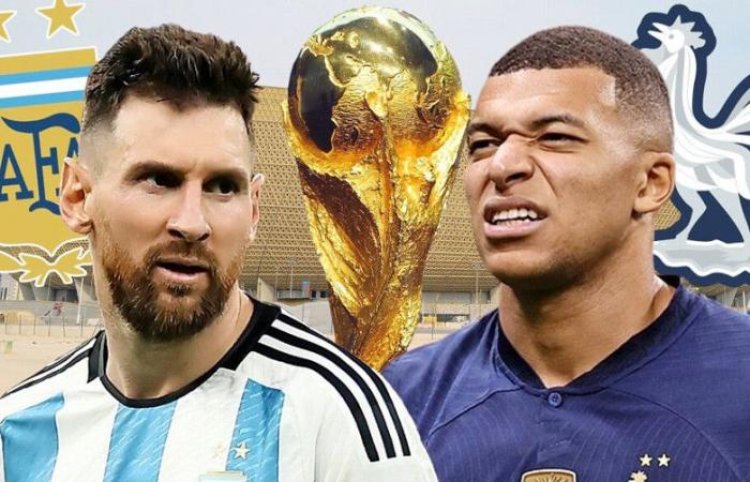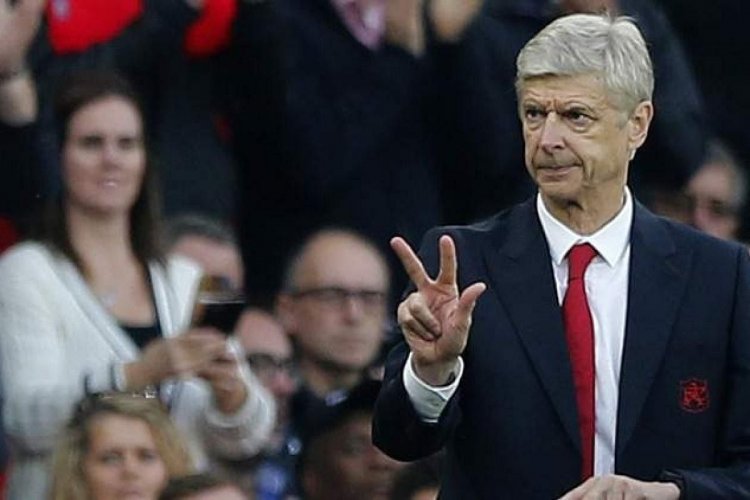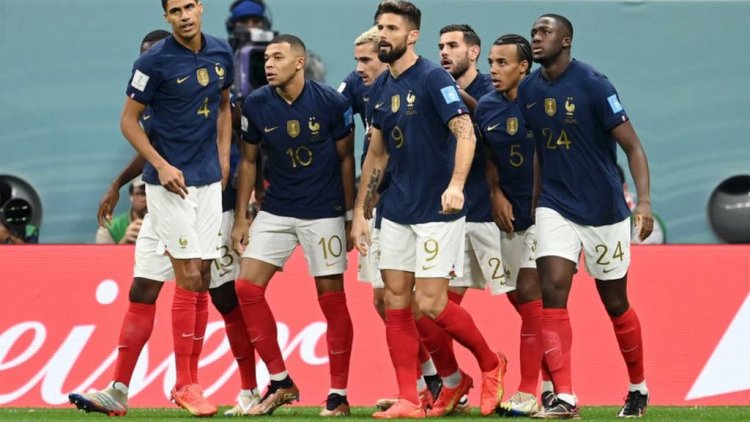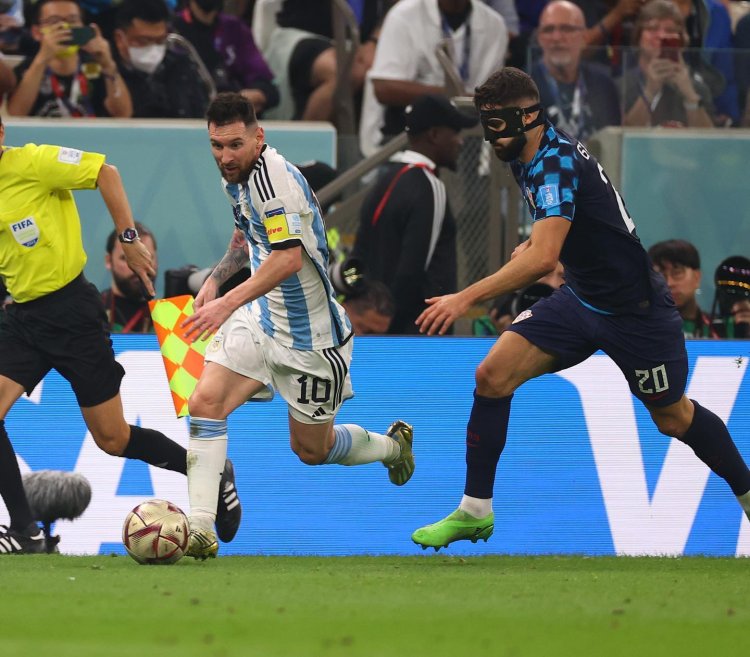Qatar 2022: Messi, Mbappé are headline grabbers but support casts give French the edge

It was Andy Roxburgh, when Uefa technical director, who coined the idea of the “gifted soloist” in football — that player who jumps from the ranks of the choir to sing the signature tune of a match.
The music of the 2022 World Cup final will be dominated by Argentina fans singing their anthem of the tournament, Muchachos, ahora nos volvimos a ilusionar (“Boys, now we have hope again”). The song, name-checking the Falklands, develops an image of Diego Maradona cheering Lionel Messi to glory from heaven.
It is a narrative that appeals to fans everywhere. Didier Deschamps said that because of Messi there are even people cheering Argentina in France.

It has felt like a tournament for the talismans, led by the greatest of all — the little artist from Rosario who, at 35, may bow out of international football after Lusail. It has been Messi’s World Cup, but also Kylian Mbappé’s and it feels like there was an increase in dribbling, a reduced emphasis on set pieces, and more games won by brilliant moments rather than grinding tactical play.
On numerous Doha skyscrapers there are images of leading talents. Almost all are attackers and this has lived up to the host country’s hopes of a finals defined by stars.
Roxburgh defined the “soloist” as the “player who beats the system” and we have seen a fightback against the over-coached stand-offs that disfigure the modern game.
Such is the fitness, preparation and professionalism of today’s top teams that great swathes of play look samey from one high level game to the next.
“How do you beat well-organised teams and good defensive structures? It would be through those soloists or individuals or speed and we’ve seen some magical moments in games,” David Moyes says. “Mbappé going past people, or bits where Messi gets to the byline and creates the goal.”
Fifa’s technical report on the 2018 finals concluded that “from a tactical perspective the brand of football was very measured.”

On Saturday Arsène Wenger, Fifa’s head of global football development, presented some thoughts on Qatar 2022.
He pointed to a rise in wide play and teams deploying high-skill individuals to go round opposition blocks, reflected in the number of goals from crosses rising 83 per cent — from 24 to 45 — prior to the third-place play-off.
Other countries have enjoyed difference-making instances of artistry, from Bukayo Saka’s dribbles for England to Neymar’s ingenious double give-and-go goal for Brazil v Croatia.
It is appropriate that the final is both a soloists’ showdown of Messi v Mbappé and grand decider between the two sides who are best at playing in moments and winning games that way.
Argentina’s method is well established. It won them a Copa America v Brazil at the Maracana and underpins a run of 42 games with one loss, and it can be knockout to watch. The others graft and wait, like a boxer behind a jab, then Messi floors them with a sudden, dizzying combination.
There was that explosive dart and dance round Josko Gvardiol to set up Julián Álvarez v Croatia, the electric sequence of pass-run-shoot to score v Australia. The explosive strike against Mexico where — typifying how, in old age, he works in moments — he was standing still in space observing play unfold just seconds before.
There is more of an ensemble feel to how France operate but theirs is still an approach where the team hangs back and forwards do the damage in bursts. To label them as mere counterattackers is to underplay the surgical ruthlessness of Deschamps’ team.
They are not just Mbappé but Antoine Griezmann, Ousmane Dembélé, Theo Hernández, Adrien Rabiot, Olivier Giroud.

They carve in a variety of patterns, assessing where the opposition is vulnerable and when — according to the game situation — to go for incisions.
Think of the win against England when, with Gareth Southgate’s team preoccupied with stopping Mbappé on France’s left, Griezmann exploited room on France’s right to establish early control — then his pinpoint cross and Giroud’s pinpoint movement for the winner.
Or look at both French goals against Morocco — with each there was a cluster of defenders in the middle drawn to Mbappé and a Frenchman free to score at the far post. Or the win over Denmark, where France attacked down the sides and scored through Mbappé coming into the middle.
Patterned, targeted football. Football played in moments, bursts. At other times the French are happy to leave opponents with the ball, having 48 per cent possession v Denmark, 43 per cent v England and 39 per cent v Morocco.
Mbappé is still the group’s soloist, though, and just as Southgate faced calls to go to a back five to try to combat France’s lightning bolt No 10, so Lionel Scaloni, the Argentina head coach, faced questions about changing to a 5-3-2 formation.
He is likely to stick with 4-4-2 and restore Marcos Acuña (suspended against Croatia) at left back in place of Nicolás Tagliafico.
France’s week was disrupted by a virus which forced players to socially distance and ruled Rabiot and Dayot Upamecano out against Morocco but Deschamps had a full complement at training yesterday and looks set to name the same XI that started against England.

The Messi narrative is powerful but nobody should underestimate France’s ability to stop the music. Deschamps was calm and business-like pre-match.
This is his third World Cup final and fifth major tournament final as manager or player and he also played or managed in five Champions League finals. “I have no worries or stress,” he said. Messi has played such beautiful songs but I think France might just claim the stage.




















